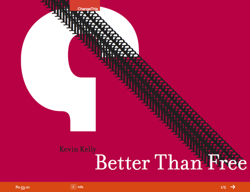Timothy Burke is my new hero. The death* of newspapers, he says, is a problem mainly because somebody’s got to pay for investigative reporting:
We don’t need newspapers to have film criticism or editorial commentary or consumer analysis of automobiles or comic strips or want ads or public records. It might be that existing online provision of those kinds of information could use serious improvement or has issues of its own. It might be that older audiences don’t know where to find some of that information, or have trouble consuming it in its online form. But there’s nothing that makes published newspapers or radio programming inherently superior at providing any of those functions, and arguably many things that make them quite inferior to the potential usefulness of online media. So throw the columnists and the reviewers and the lifestyle reporters off the newspaper liferaft.
So it comes down to independent, sustained investigation of public affairs. The argument that online media cannot provide this function comes down to money…
Burke gives more details and examples, and calls for new funding models, including philanthropic and/or foundation money. He concludes that the “The end of the newspaper model of the last century doesn’t have to be the end of independent investigative reporting.”
Go read the whole thing.
*It seems like death and rebirth, to me, especially with some major newspapers reinventing themselves online. But that’s another matter.
Burke first came to my attention last year, from a talk he gave to the LC Working Group on the Future of Bibliographic Control at March’s meeting on the Users and Uses of Bibliographic Data. Burke represented and reflected upon the user perspective, as an academic who searches catalogs outside his area of expertise.
